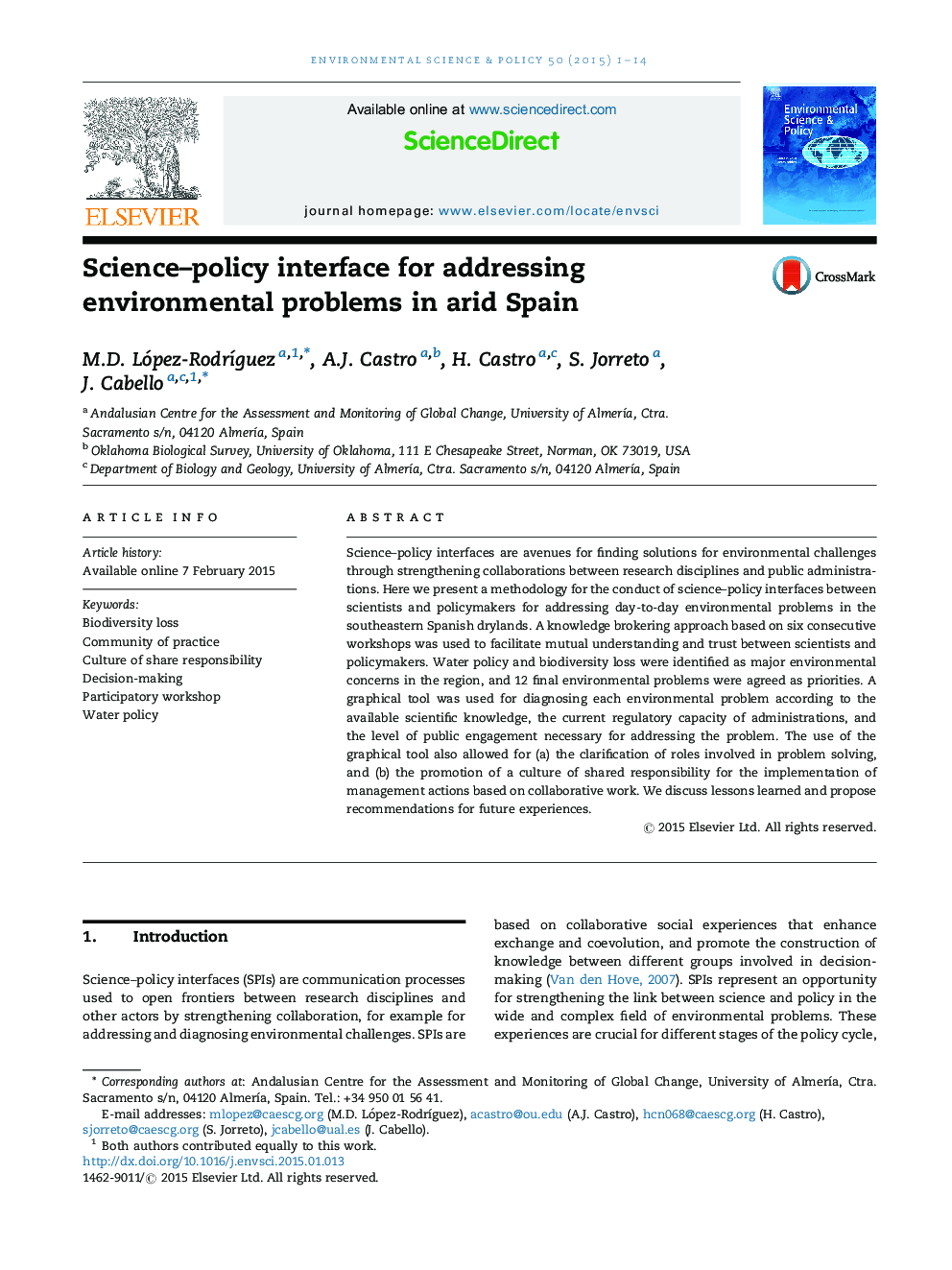| Article ID | Journal | Published Year | Pages | File Type |
|---|---|---|---|---|
| 1053477 | Environmental Science & Policy | 2015 | 14 Pages |
•A science–policy interface is conducted for addressing environmental problems.•Water policy and biodiversity loss are the major environmental concerns.•Work between scientists and policymakers promoted a culture of shared responsibility.•Collaborative management actions are implemented by creating interface teams.
Science–policy interfaces are avenues for finding solutions for environmental challenges through strengthening collaborations between research disciplines and public administrations. Here we present a methodology for the conduct of science–policy interfaces between scientists and policymakers for addressing day-to-day environmental problems in the southeastern Spanish drylands. A knowledge brokering approach based on six consecutive workshops was used to facilitate mutual understanding and trust between scientists and policymakers. Water policy and biodiversity loss were identified as major environmental concerns in the region, and 12 final environmental problems were agreed as priorities. A graphical tool was used for diagnosing each environmental problem according to the available scientific knowledge, the current regulatory capacity of administrations, and the level of public engagement necessary for addressing the problem. The use of the graphical tool also allowed for (a) the clarification of roles involved in problem solving, and (b) the promotion of a culture of shared responsibility for the implementation of management actions based on collaborative work. We discuss lessons learned and propose recommendations for future experiences.
